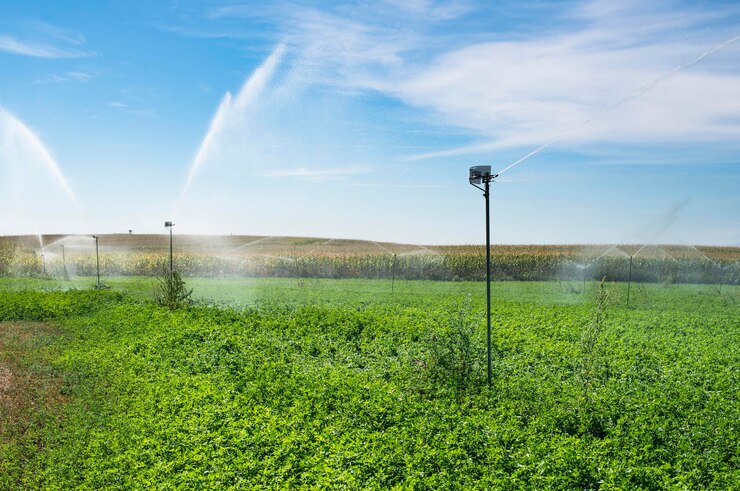Water is one of the most critical resources in agriculture, yet it is often used inefficiently, leading to wastage and environmental strain. With climate change intensifying droughts and water shortages, smart irrigation systems are emerging as the future of water management. These advanced systems use technology to optimize water usage, ensuring that crops receive the right amount of hydration at the right time. By integrating sensors, automation, and artificial intelligence (AI), smart irrigation is transforming farming, improving efficiency, and promoting sustainability.
1. What Are Smart Irrigation Systems?
Smart irrigation systems use sensors, weather data, and automation to precisely manage water application. Unlike traditional irrigation methods, which often rely on manual operation or preset timers, smart irrigation systems continuously adjust based on real-time conditions. This ensures that water is only applied when necessary, reducing waste and preventing over- or under-watering.
2. Key Technologies in Smart Irrigation
- Soil Moisture Sensors: These sensors measure the water content in the soil and send data to irrigation systems, allowing them to activate only when moisture levels drop below a certain threshold.
- Weather-Based Controllers: By analyzing real-time weather data, including temperature, humidity, and rainfall predictions, these controllers adjust irrigation schedules to prevent unnecessary watering.
- Automated Drip Irrigation: Drip irrigation systems deliver water directly to plant roots with minimal evaporation or runoff. When combined with automation, they ensure precise water distribution.
- AI and Machine Learning: AI-powered irrigation systems analyze past data, crop needs, and climate trends to optimize watering schedules and improve long-term water management strategies.
- Remote Monitoring and Control: Farmers can monitor and adjust irrigation systems remotely via smartphones or computers, providing greater flexibility and control over water usage.
3. Benefits of Smart Irrigation Systems
- Water Conservation: By applying water only where and when it’s needed, smart irrigation can reduce water usage by up to 50%, helping to combat water scarcity.
- Higher Crop Yields: Proper hydration improves plant health and productivity, leading to better harvests and increased profits for farmers.
- Cost Savings: By reducing water consumption and minimizing manual labor, smart irrigation systems lower operational costs.
- Environmental Sustainability: Efficient water management reduces runoff and soil erosion while preventing excessive groundwater depletion.
- Adaptation to Climate Change: With unpredictable rainfall patterns, smart irrigation helps farmers adapt to changing weather conditions and maintain stable production levels.
4. The Future of Smart Irrigation
As technology continues to evolve, smart irrigation systems will become even more advanced. The integration of AI, satellite imagery, and Internet of Things (IoT) technology will further enhance precision irrigation. Governments and agricultural organizations are also investing in water-saving initiatives, making these systems more accessible to farmers.
Smart irrigation is no longer just an innovation—it is a necessity for the future of agriculture. By adopting these intelligent water management solutions, farmers can improve efficiency, conserve resources, and ensure long-term sustainability in food production. As water becomes an increasingly scarce commodity, smart irrigation will play a vital role in securing the future of farming.
Join 'Farmers Mag' WhatsApp Channel
Get the latest Farming news and tips delivered straight to your WhatsApp
CLICK HERE TO JOIN






